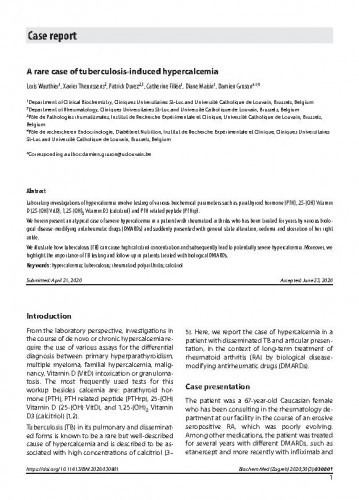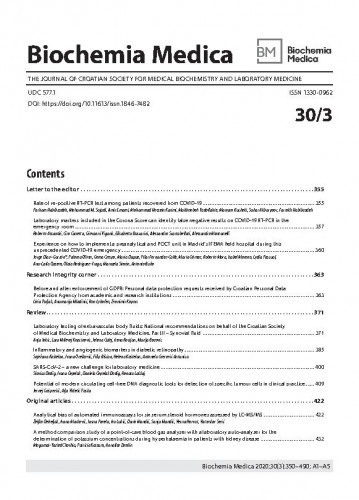Laboratory investigations of hypercalcemia involve testing of various biochemical parameters such as parathyroid hormone (PTH), 25-(OH) Vitamin D (25-(OH) VitD), 1,25-(OH)2 Vitamin D3 (calcitriol) and PTH related peptide (PTHrp). We herein present an atypical case of severe hypercalcemia in a patient with rheumatoid arthritis who has been treated for years by various biological disease-modifying antirheumatic drugs (DMARDs) and suddenly presented with general state alteration, oedema and ulceration of her right ankle. We illustrate how tuberculosis (TB) can cause high calcitriol concentration and subsequently lead to potentially severe hypercalcemia. Moreover, we highlight the importance of TB testing and follow-up in patients treated with biological DMARDs.
Sažetak

 Biochemia medica : the journal of Croatian Society for Medical Biochemistry and Laboratory Medicine : 30,3(2020) / glavna i odgovorna urednica Daria Pašalić.
Biochemia medica : the journal of Croatian Society for Medical Biochemistry and Laboratory Medicine : 30,3(2020) / glavna i odgovorna urednica Daria Pašalić.